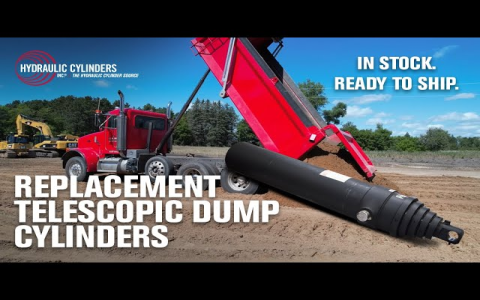4-Stage Telescopic Hydraulic Cylinders for Dump Trucks Guide
When your dump truck’s lifting power starts feeling sluggish, the problem often traces back to the heart of the system – the telescopic hydraulic cylinder. As someone who’s spent a decade testing trucks and writing about their performance, I’ve seen how the right 4-stage telescopic hydraulic cylinder can transform a dump truck’s productivity. These multi-stage workhorses provide the extended reach and powerful lifting capacity needed for demanding jobs, from construction sites to mining operations. Unlike single-stage cylinders, 4-stage designs collapse into compact spaces while delivering impressive vertical lift when fully extended. This guide will walk you through everything from proper maintenance to replacement considerations, giving you the knowledge to keep your dump truck operating at peak performance.
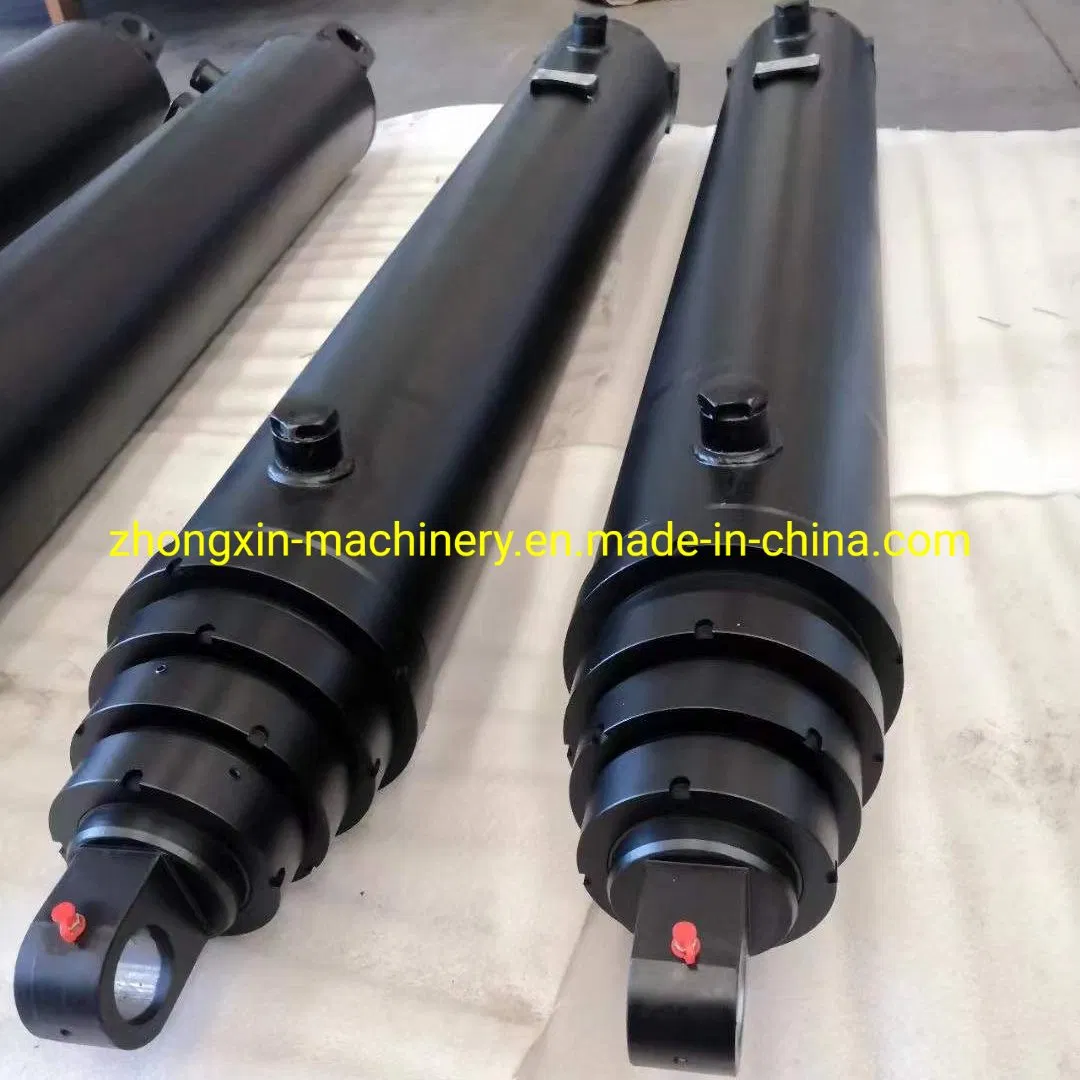
What Exactly Are 4-Stage Telescopic Hydraulic Cylinders?
Think of telescopic hydraulic cylinders as the strong, folding arms of your dump truck. A 4-stage telescopic hydraulic cylinder consists of four nested tubes that extend sequentially, with the largest diameter tube at the base and progressively smaller tubes extending outward. This design allows for a significantly longer stroke length than a single-stage cylinder of the same collapsed length.
When hydraulic pressure enters the cylinder, it first extends the largest stage, followed by the next, continuing until all four stages are fully extended. The retraction process reverses this sequence. This sophisticated mechanism enables dump trucks to achieve substantial dump angles and clearances while maintaining a compact design when not in use.
Key Benefits of 4-Stage Design for Dump Operations
Why should dump truck owners specifically consider 4-stage telescopic hydraulic cylinders? The advantages are substantial:
- Extended Reach: The multi-stage design provides greater lift height compared to single or double-stage cylinders, allowing for more efficient material dumping in various situations.
- Space Efficiency: When retracted, these cylinders occupy minimal space, contributing to better vehicle design and weight distribution.
- Increased Power Density: More lifting capability fits into a smaller package, which is crucial for dump trucks with space constraints.
- Versatile Application: From standard dump trucks to transfer trailers and mining applications, the 4-stage configuration adapts to numerous heavy-duty scenarios.
Critical Specifications When Selecting Cylinders
Choosing the right 4-stage telescopic hydraulic cylinder requires attention to several technical specifications. Getting these wrong can lead to premature failure or inadequate performance.
| Specification | Standard Duty | Heavy Duty | Mining Grade |
|---|---|---|---|
| Maximum Extended Length | 180-220 inches | 220-260 inches | 260-300+ inches |
| Collapsed Length | 70-90 inches | 80-100 inches | 90-110 inches |
| Bore Diameter | 5-7 inches | 6-8 inches | 7-10 inches |
| Working Pressure | 2500-3000 PSI | 3000-3500 PSI | 3500-4000+ PSI |
| Typical Lifespan | 5-7 years | 7-10 years | 10-15 years |
According to a comprehensive equipment maintenance survey by Equipment World, properly specified hydraulic cylinders in dump trucks demonstrated 42% longer service life compared to undersized or incorrectly specified units. This highlights the importance of matching cylinder specifications to your specific operational requirements.
Common Failure Points and Maintenance Strategies
Through years of inspecting and testing dump truck hydraulic systems, I’ve identified several recurring issues with 4-stage telescopic hydraulic cylinders. The most common problems include:
- Stage Leakage: Worn seals between stages allow hydraulic fluid to pass between sections, reducing efficiency and causing drift.
- Bent Rods: Improper loading or side forces can bend the smaller diameter stages, leading to binding and seal damage.
- Contamination Damage: Dirt and debris entering the system score cylinder walls and damage seals.
- Corrosion Pitting: Exposure to road salts and chemicals can pit chrome surfaces, compromising seal integrity.
Michael Rodriguez, a certified fluid power specialist with over 20 years of experience in heavy equipment hydraulics, emphasizes proactive maintenance: “The single most important practice for extending telescopic cylinder life is regular fluid analysis. Catching contamination early prevents the cascade of failures that often begins with minor seal damage and ends with costly stage replacement.”
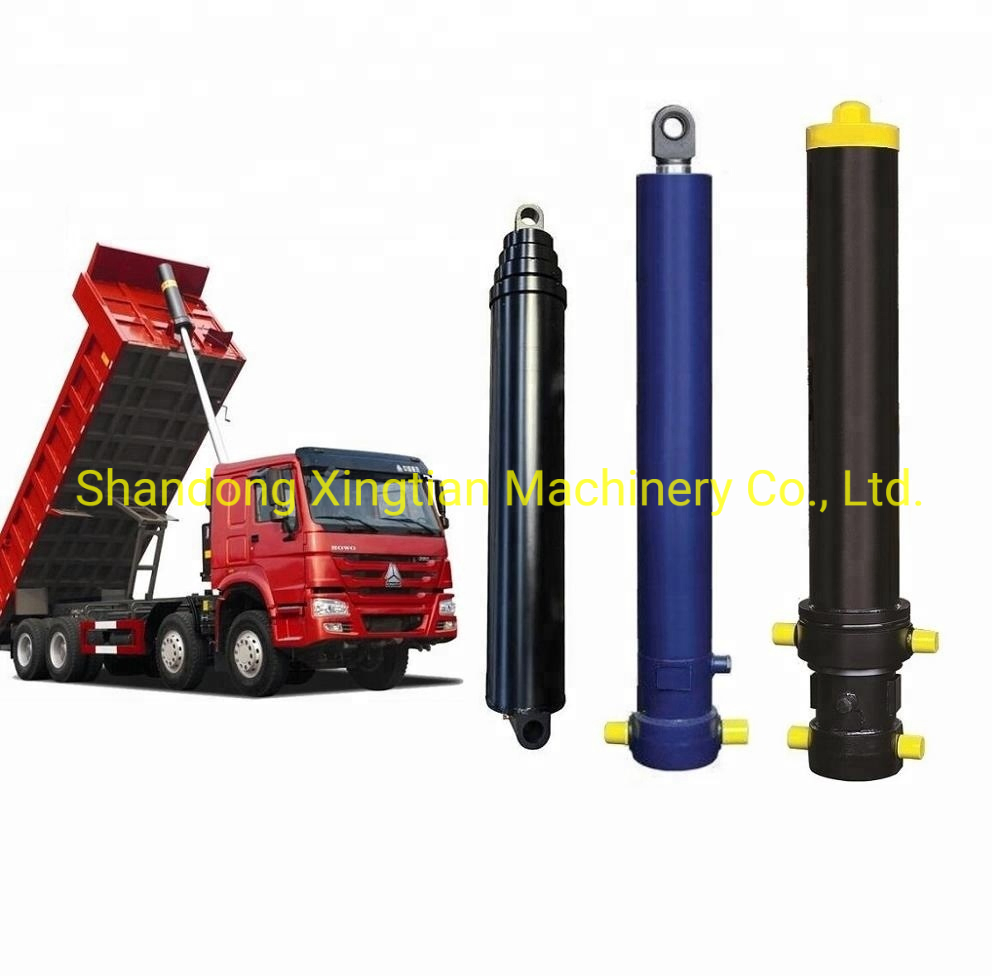
Installation Best Practices and Alignment Considerations
Proper installation significantly impacts the performance and longevity of your 4-stage telescopic hydraulic cylinders. Even the highest quality cylinder will underperform if incorrectly installed.
Begin by ensuring all mounting surfaces are clean and free of burrs or imperfections. Use appropriate lifting equipment – these components are heavy and awkward to handle. During installation, avoid using the hydraulic system to pull components into alignment, as this places unnecessary stress on mounts and seals.
Critical alignment checks include verifying parallel mounting within 1/16 inch over the entire length and ensuring proper pivot point lubrication. Misalignment is a primary contributor to premature seal failure and binding during extension and retraction cycles.
When to Repair vs. Replace Your Hydraulic Cylinders
Determining whether to repair or replace a failing 4-stage telescopic hydraulic cylinder involves several considerations. Generally, cylinders with only seal wear or minor surface damage are excellent candidates for repair. However, cylinders with extensively scored tube interiors, severely bent stages, or those requiring multiple stage replacements often make replacement more economically viable.
The cost of a complete rebuild typically ranges from 40-60% of a new cylinder’s price. If your cylinder has already been rebuilt previously, or if the repair estimate exceeds 65% of replacement cost, investing in a new unit usually provides better long-term value.
A study published by the Fluid Power Institute found that properly maintained 4-stage telescopic hydraulic cylinders in dump truck applications delivered reliable performance for an average of 8.2 years before requiring major overhaul, with some units reaching 12 years with consistent maintenance.
Answers to Common Dump Truck Cylinder Questions
How often should I inspect my dump truck’s hydraulic cylinders?
Conduct visual inspections before each work shift, checking for leaks, dents, or misalignment. Perform comprehensive inspections monthly, including checking mounting hardware torque and examining for signs of abnormal wear.
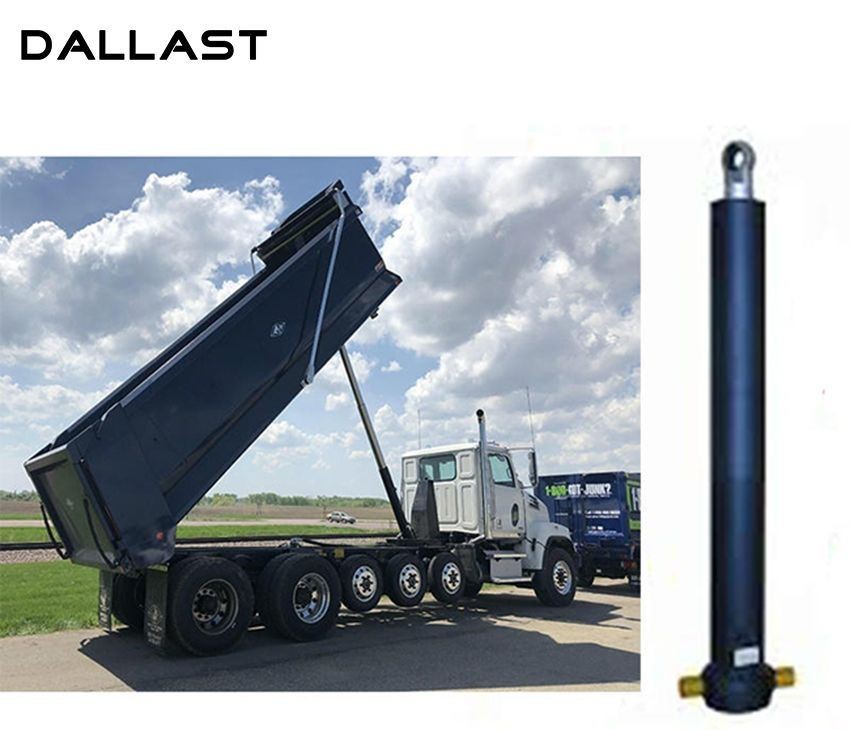
What are the signs that my telescopic cylinder needs rebuilding?
Key indicators include visible hydraulic fluid leakage, inability to maintain lifted position (drift), slow extension or retraction, uneven staging extension, and unusual noises during operation.
Can I replace just one damaged stage instead of the entire cylinder?
Yes, in many cases individual stages can be replaced, but this requires specialized knowledge and equipment. The cost-effectiveness depends on the price and availability of the specific stage and the condition of the remaining components.
How can I extend the life of my hydraulic cylinders?
Implement regular maintenance including proper filtration, timely seal replacement, keeping rod surfaces clean, avoiding overloading, and ensuring correct alignment during installation.
What causes a telescopic cylinder to extend unevenly or bind?
Uneven extension typically results from worn seals, internal damage, misalignment, or contamination in the hydraulic system. Binding often indicates bent stages, damaged guides, or excessive side loading.
Final Recommendations for Optimal Performance
Selecting and maintaining the right 4-stage telescopic hydraulic cylinders for your dump truck requires careful consideration of your specific operational needs. Don’t compromise on quality – the initial savings from inferior components rarely offset the costs of downtime and repairs. Partner with reputable manufacturers and service providers who understand the demanding nature of dump truck operations.
Remember that your hydraulic system represents the muscle of your dump truck. Properly specified and maintained 4-stage telescopic hydraulic cylinders will deliver years of reliable service, maximizing your equipment investment and keeping your operations running smoothly.
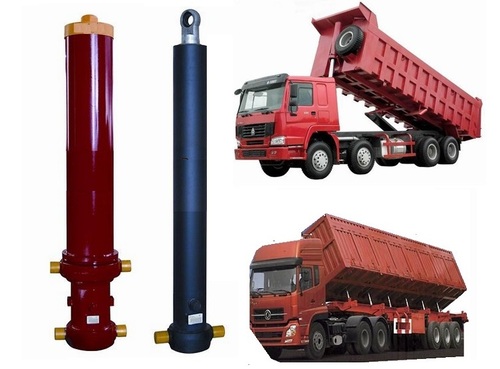
Sources and Further Reading
- National Fluid Power Association Standards for Hydraulic Cylinders
- OSHA Standards for Powered Industrial Trucks
- Equipment World Maintenance Survey 2022 – Hydraulic System Performance Data
- Fluid Power Institute Research Paper: “Service Life Expectancy of Multi-Stage Hydraulic Cylinders in Heavy Equipment” (2019)
